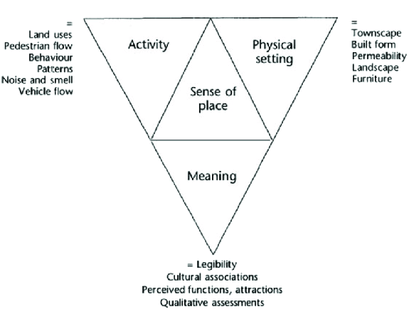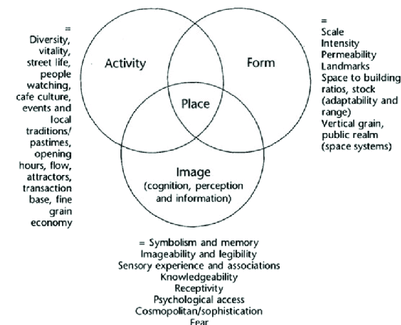The Ten Commandments:
The Ten Commandments were given by God to the prophet Moses during Old Testament times. Recorded in the Holy Bible, these commandments form the foundation for the laws governing the moral conduct of God’s children.
Catholicism- The Church doesn’t see the Ten Commandments as arbitrary rules and regulations from the man upstairs but as commandments for protection. Obey them and eternal happiness is yours. Disobey them and suffer the consequences.
-
“I am the Lord thy God, thou shalt not have any strange gods before Me.”
This commandment forbids idolatry, the worship of false gods and goddesses, and it excludes polytheism, the belief in many gods, insisting instead on monotheism, the belief in one God. This commandment forbids making golden calves, building temples to Isis, and worshiping statues of Caesar, for example.
-
“Thou shalt not take the name of the Lord thy God in vain.”
The faithful are required to honor the name of God. It makes sense that if you’re to love God with all your heart, soul, mind, and strength, then you’re naturally to respect the name of God with equal passion and vigor.
-
“Remember to keep holy the Sabbath day.”
The Jewish celebration of Sabbath (Sabbath) begins at sundown on Friday evening and lasts until sundown on Saturday. Catholic, Protestant, and Orthodox Christians go to church on Sunday, treating it as the Lord’s Day instead of Saturday to honor the day Christ rose from the dead.
-
“Honor thy father and mother.”
This commandment obliges the faithful to show respect for their parents — as children and adults. Children must obey their parents, and adults must respect and see to the care of their parents, when they become old and infirm.
-
“Thou shalt not kill.”
The better translation from the Hebrew would be “Thou shalt not murder” — a subtle distinction but an important one to the Church. Killing an innocent person is considered murder. Killing an unjust aggressor to preserve your own life is still killing, but it isn’t considered murder or immoral.
-
“Thou shalt not commit adultery.”
The sixth and ninth commandments honor human sexuality. This commandment forbids the actual, physical act of having immoral sexual activity, specifically adultery, which is sex with someone else’s spouse or a spouse cheating on their partner. This commandment also includes fornication, which is sex between unmarried people, prostitution, pornography, homosexual activity, masturbation, group sex, rape, incest, pedophilia, bestiality, and necrophilia.
-
“Thou shalt not steal.”
The seventh and tenth commandments focus on respecting and honoring the possessions of others. This commandment forbids the act of taking someone else’s property. The Catholic Church believes that this commandment also denounces cheating people of their money or property, depriving workers of their just wage, or not giving employers a full day’s work for a full day’s pay. Embezzlement, fraud, tax evasion, and vandalism are all considered extensions of violations of the Seventh Commandment.
-
“Thou shalt not bear false witness against thy neighbor.”
The Eighth Commandment condemns lying. Because God is regarded as the author of all truth, the Church believes that humans are obligated to honor the truth. The most obvious way to fulfill this commandment is not to lie — intentionally deceive another by speaking a falsehood. So a good Catholic is who you want to buy a used car from.
-
“Thou shalt not covet thy neighbor’s wife.”
The Ninth Commandment forbids the intentional desire and longing for immoral sexuality. To sin in the heart, Jesus says, is to lust after a woman or a man in your heart with the desire and will to have immoral sex with them. Just as human life is a gift from God and needs to be respected, defended, and protected, so, too, is human sexuality. Catholicism regards human sexuality as a divine gift, so it’s considered sacred in the proper context — marriage.
- “Thou shalt not covet thy neighbor’s goods.
The Tenth Commandment forbids the wanting to or taking someone else’s property. Along with the Seventh Commandment, this commandment condemns theft and the feelings of envy, greed, and jealousy in reaction to what other people have.
I am going to base my tableaux vivant of the 6th commandment ‘thou shalt not commit adultery’. Christians believe that marriage is a gift from God, one that should not be taken for granted. It is the right atmosphere to engage in sexual relations and to build a family life. Getting married in a church, in front of God, is very important. A marriage is a public declaration of love and commitment. Adultery is voluntary sexual intercourse between a married person and a person who is not their spouse and is seen as a sin. In the Old Testament, adultery was understood as sexual relations between a married (or betrothed) woman and a man other than her husband. It was therefore a sin against the husband. The Bible mentions adultery as grounds for divorce but does not require it. In many cases the husband and wife can be reconciled and the marriage saved even after adultery. It is not a sin to continue to live with and have sex with a spouse who has committed adultery. (As a practical matter, the risks of sexually transmitted diseases should be considered.) As with other sins, God will forgive the sin of adultery if a person sincerely repents and also forgives other people. Even though God will forgive adultery, the damage it causes often cannot be undone. It is extremely hurtful to the spouse. It often leads to divorce and leaves the marriage partners embittered, disillusioned and financially poorer. It robs the children of the love and security of a healthy family and denies them a good role model for their own future marriages. Children from families where there is conflict and/or divorce are more prone to anxiety, poor school performance, drug abuse and delinquent behavior. These problems can persist into adulthood. Adult children of divorced parents tend to have lower educational attainment, lower income, more children out of wedlock, higher rates of divorce themselves, and a lower sense of well-being.

My Final Outcomes


I used three girls to represent a gay relationship as I wanted to go against the Christian vision of a relationship between a women and a man. As well as that I wanted to steer away from the stereotype of the men always cheating on the women and seeing as its a lesbian relationship its impossible for a men to be expressed as the one committing adultery. I asked my friends not to wear anything specific and just wear what they usually would wear on a day to day basis to symbolize how adultery has become much more casual. This is due to it becoming more common therefore people don’t see it as a big deal.This is the opposite as to how Old Testament Christians used to see it, it was a sinful act that would send you to hell but nowadays as long as you repent you can cleanse that sin.
I decreased exposure on both photos in Photoshop as the sky was very bright yet overcast, me and my friends went out at 10 am in order to miss the midday sun and avoid overexposure. The structure on the first image is symmetrical and repetitive which symbolizes the constant and on going affects adultery has on the couple and their family. In the second photo there is a clear split as if the cheater and their married parent are living in different worlds and how the partner is blind to the act in which her significant other is taking part in. In the second photo I wanted the phone to be seen as I wanted to exaggerate the modern side of adultery and how it doesn’t just affect those who are religious or old it affects our generation as well.




